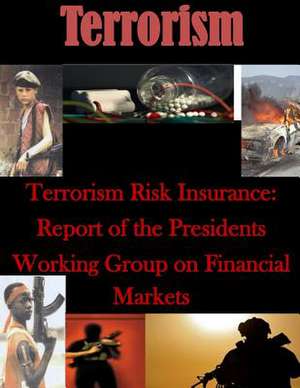Terrorism Risk Insurance
Autor U. S. Department of Treasuryen Limba Engleză Paperback
Preț: 99.96 lei
Nou
Puncte Express: 150
Preț estimativ în valută:
19.13€ • 20.45$ • 15.95£
19.13€ • 20.45$ • 15.95£
Carte disponibilă
Livrare economică 28 martie-11 aprilie
Preluare comenzi: 021 569.72.76
Specificații
ISBN-13: 9781500682569
ISBN-10: 150068256X
Pagini: 98
Dimensiuni: 216 x 279 x 5 mm
Greutate: 0.25 kg
Editura: CREATESPACE
ISBN-10: 150068256X
Pagini: 98
Dimensiuni: 216 x 279 x 5 mm
Greutate: 0.25 kg
Editura: CREATESPACE
